Deliberate OPEC-plus actions keeping oil on the boil
The rise of OPEC and the consolidation of the modern oileconomy after the disintegration of the Soviet Union in 1991 have witnessed global petroleum markets following one simple principle -supply must match demand. This equation not only keeps the price of petroleum products in check, but also ensures that the world economy remains in balance.
As long as this crucial equilibrium is maintained, oil-producing nations and petroleum companies are able to recover exploration and production (E&P) costs, midstream infrastructure and refining while maintaining a healthy profit. Oil-consuming nations are able to sustain their economic growth through reasonable fuel prices and participate in the growth of global energy value chains.
History tells us that whenever supply and demand of oil have not been in tandem, global economy has reeled under the devastating impact of high prices. In 2007-08, when supply shocks such as Venezuela cutting off shipment to Exxon Mobil, Scottish oil worker's strikes, attacks on Iraqi pipeline and Nigerian supply by militants and saboteurs, it caused the price of oil (Brent) to zoom to almost $140/barrel which was compounded by speculation.
These incidents demonstrated the impact of demandsupply mismatch on oil prices and their destructive effect on the global economy, as we also saw in the global economic meltdown. History repeats itself. After prices crashed to under $20/barrel in the aftermath of Covid-19, oil producers cut production to conserve costs.
However, after the Covid-19 vaccine rollout, when the global economy saw a V shaped recovery, oil producers held back supply to artificially inflate prices and cash in their profits. The world's largest oil company, Exxon Mobil has reported a sevenyear quarterly record profit in Q4 FY2021-22, with operating profits from pumping oil and gas alone of up to $9.3 billion, and Shell posted adjusted earnings of $9.1 billion for the three months through to the end of March, despite the RussiaUkraine conflict and sanctions.
We are witnessing an astronomical surge in oil prices with a 500% jump in just 24 months when there is no shortage in the amount of crude available. Global LNG prices have gone up over 400% in the past year and Saudi CP, our benchmark for LPG, has gone up by 37% in the past six months. Decisions to limit the quantity released in the market are keeping prices high. OPEC-plus nations have kept the increase in daily production to a modest 4.32 lakh barrels in their regular monthly meetings, which too has not been met by participating nations.
To suggest that the current supplydemand is balanced at the existing production levels is aresponse oblivious to the kind of chaos that we are witnessing around the world. The US is already facing its highest level of inflation in 50 years and the US Federal Reserve has raised rates by 50 basis points.
The UK has seen the biggest drop in living standards since the Second World War. Sri Lanka, Nepal, Pakistan, and Afghanistan are facing a collapse, driven by energy supply crunch. Oil prices at $110/barrel are simply not sustainable and will undermine global economic activity inducing recessionary conditions within a short to medium time frame. High energy prices are negatively impacting even high-growth economies like India.
Recently, the Reserve Bank of India increased its repo rate by 40 bps to 4.4% and cash reserve ratio by 50 bps to 4.5% to tackle increasing inflationary pressure. It's beyond doubt that the current global energy crisis is a 'management crisis', and the same can be quietly reversed if major suppliers decide to release the extra quantity of oil they're holding back. The recent decision by the US, Canada, South Korea and Japan to release 180 million barrels from their Strategic Petroleum Reserves was a welcome step but not sufficient.
Speculation in the current market situation will lead to higher prices and the pace of energy transition will not be orderly. Huge oil and gas reserves will remain unutilised if there is any such radical shift. In India, we are taking several steps to keep our economy firing on all cylinders despite the cited challenges.
India has been classified as the world's fastest-growing major economy with a revised IMF growth forecast of 8.2% in FY2022-23. GST collections in April 2022 touched a record high of Rs1.68 lakh crore, merchandise exports were $38.19 billion and notably petroleum exports of $7.73 billion in April 2022 saw a 113.2% jump.
India's daily consumption of oil is 5 million barrels, 60 million people go to Indian petrol pumps to 'tank up' every day. Petrol sales during March 2022 were nearly 14.2% higher than the pre-Covid period of March 2019 while diesel sales went up by 5%.
India is dependent on imports for meeting up to 85% of its crude oil and 50% of its natural gas requirements, spending almost $119 billion in FY2021-22. Our government has taken bold steps to reduce this dependence. We have rolled out facilitative E&P reforms such as HELP (Hydrocarbon Licensing Policy).
Net geographical area under exploration is set to increase from 8% (0.25 million sq km) to 15% (0.5 million sq km) by 2025 with an expected investment of $58 billion in E&P by 2023. We aim to increase the share of natural gas in the country's energy mix to 15% from the current 7% and are expecting an investment of $60 billion in natural gas infrastructure by 2024.
We increased biofuel blending from just 1.4% in 2014 to 10% last month and saved Rs3,000 crore of foreign exchange. It's in the long-term interest of global suppliers and producers to keep prices reasonable. High prices not only inflict enormous pain on oil buyers but their impact is felt across the global economic value chain of products and services.

PM Sh Narendra Modi Ji has done the unthinkable in Bihar and it will change the grammar and lexicon of Indian politics for the ti...
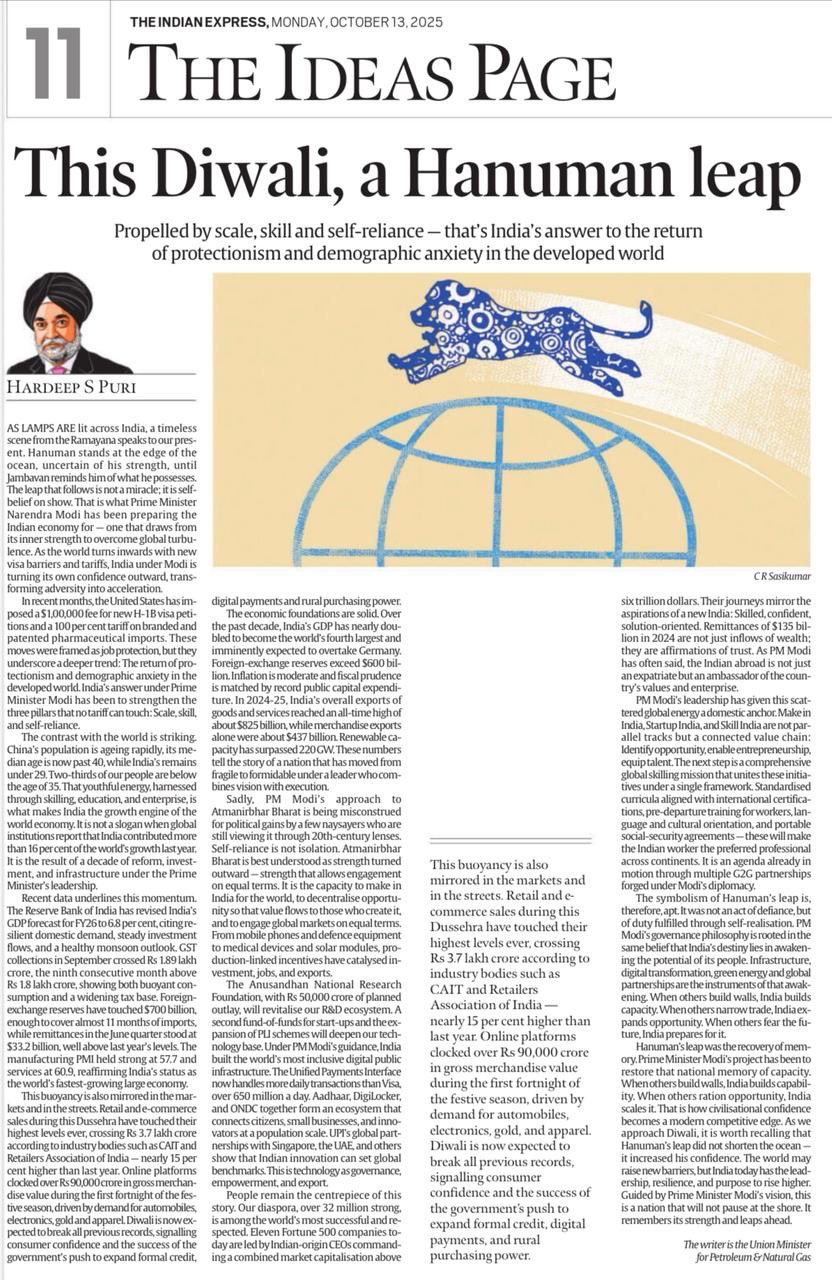
As the world passes through a period of geopolitical turmoil and uncertainty, India, under the visionary & decisive leadership of ...
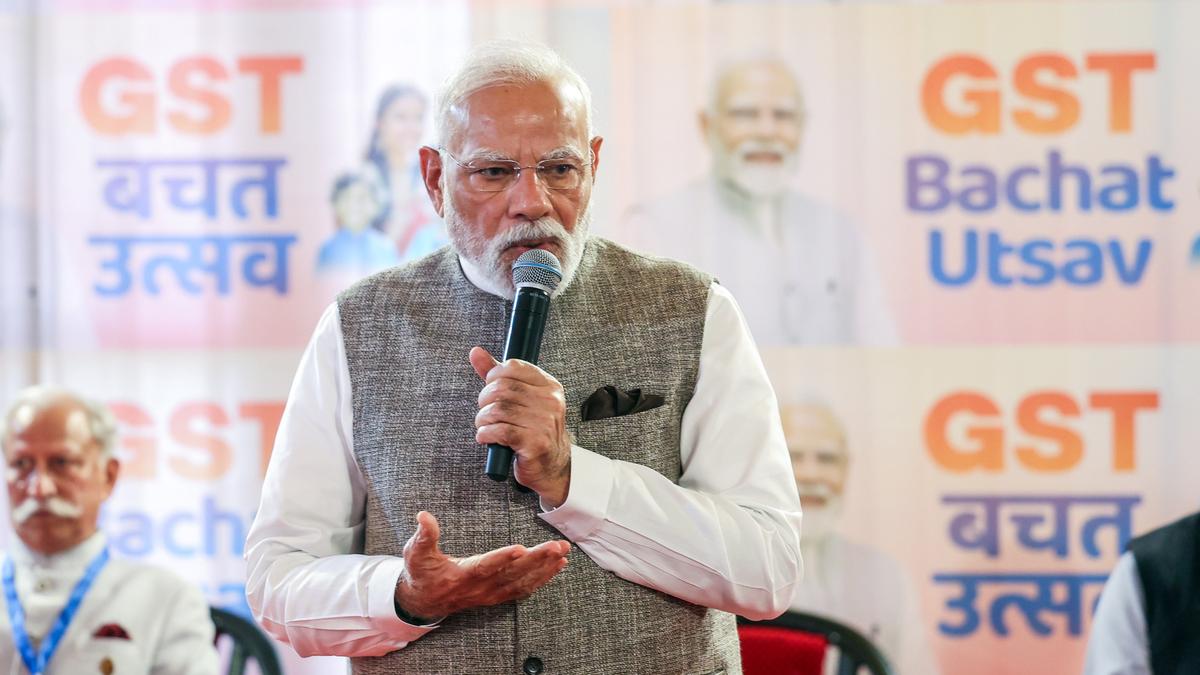
The Prime Minister’s professionalism and work ethic are what make the difference on the ground Praise has been showered on Pr...
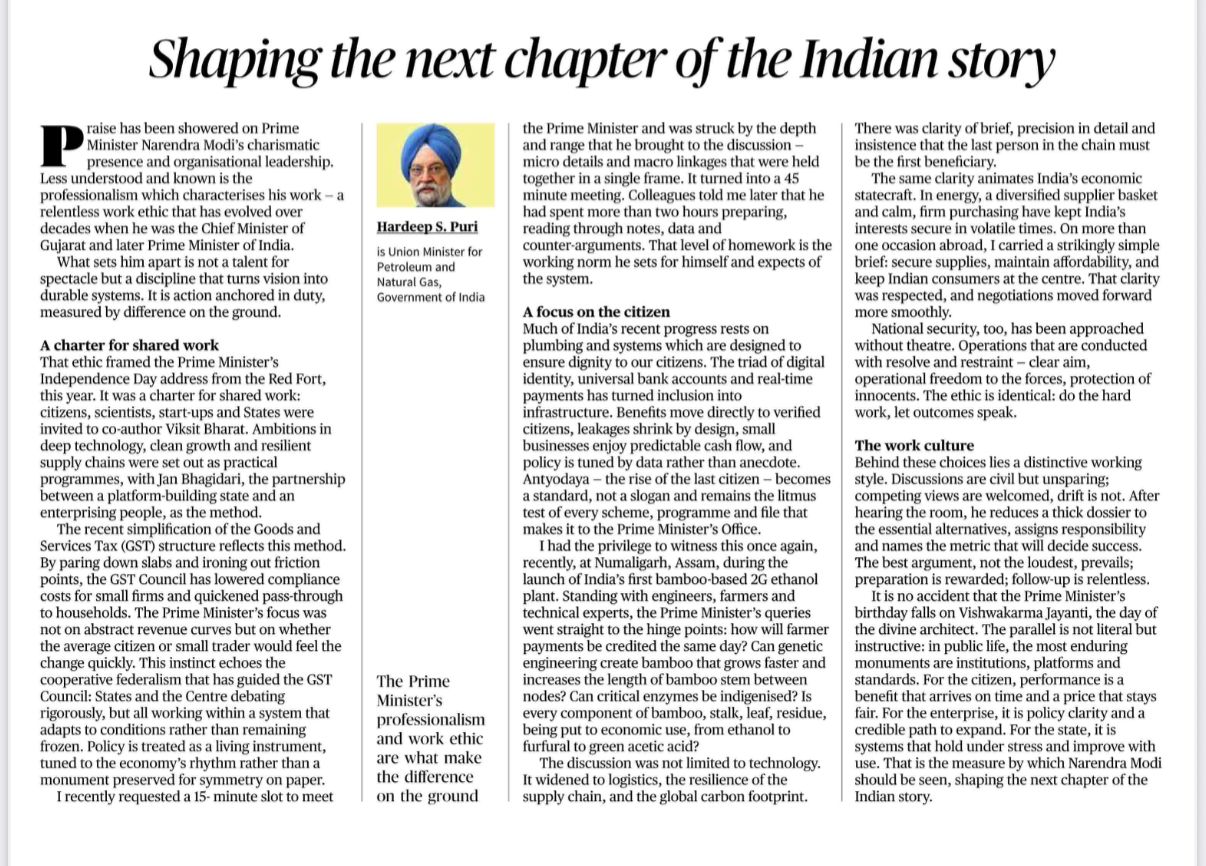
Shaping the next chapter of the Indian story!...

Indian cities are again on that path to being modern yet humane, ambitious yet inclusive, global in outlook yet rooted in our valu...

India’s fact-rich story of resilience, growth and energy security will silence the ‘global doubters’ who call it a ‘dead e...
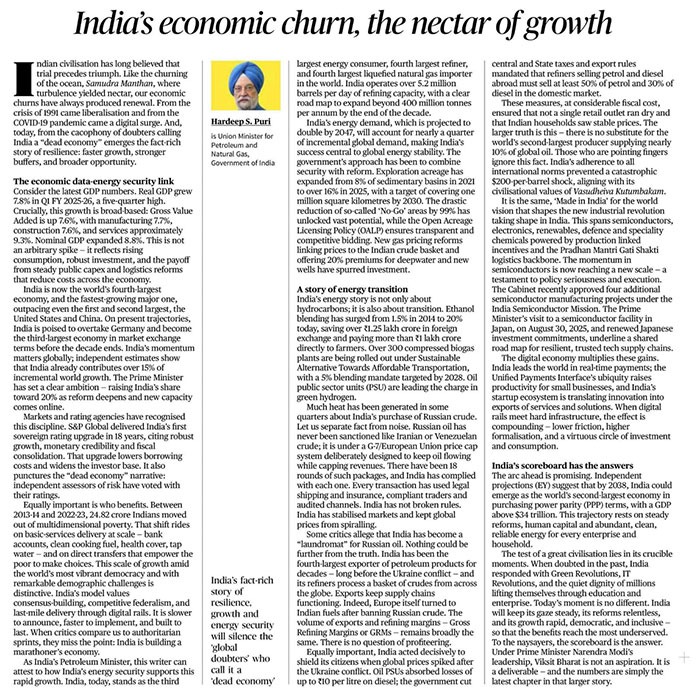
The test of a great civilisation lies in its crucible moments. When doubted in the past, India responded with Green Revolutions, I...
.jpeg)
विकसित भारत के लिए प्रधानमंत्री श्री नरेंद्र मोद...
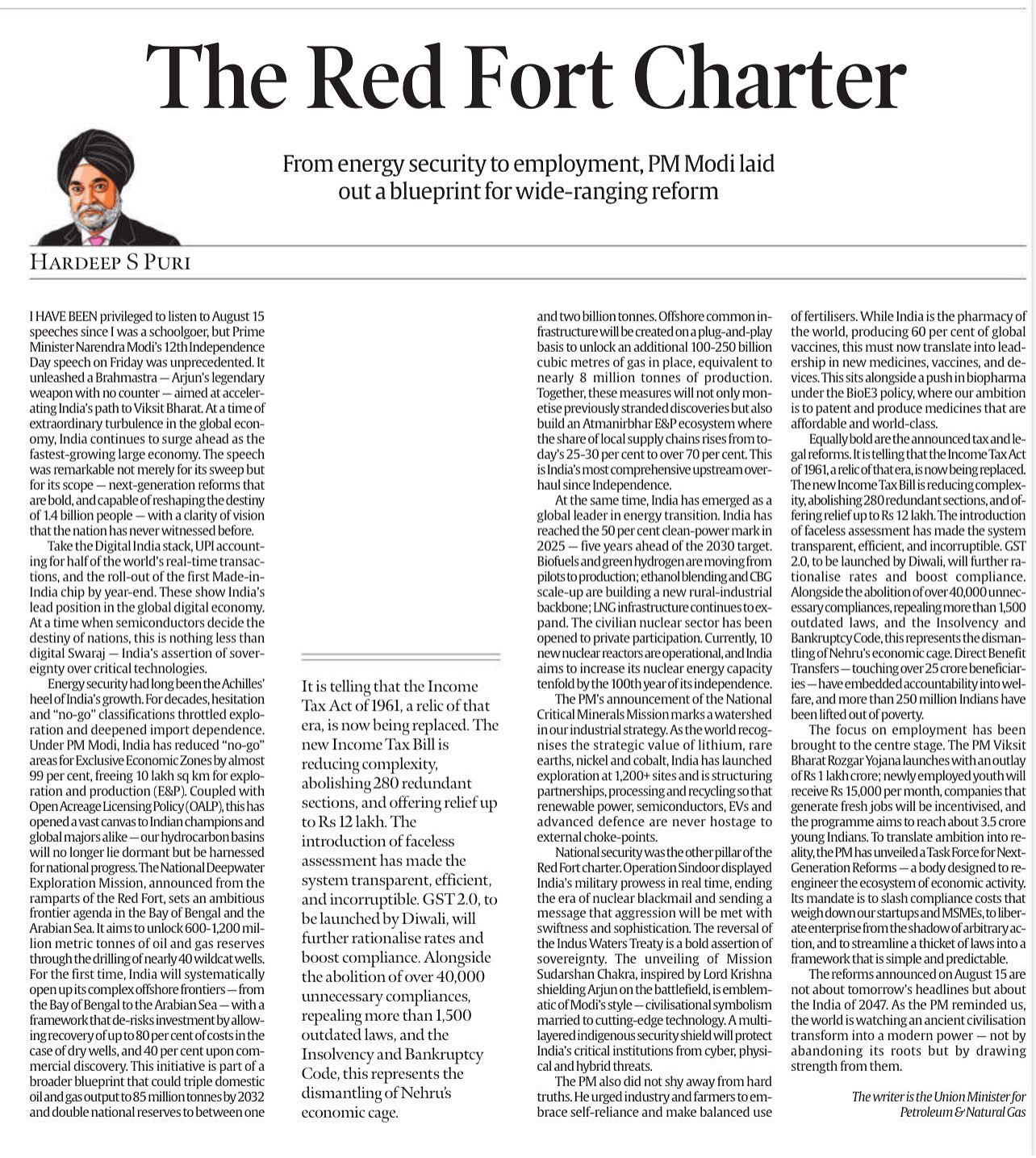
PM Sh Narendra Modi Ji’s unprecedented 12th Independence Day speech was remarkable for its sweep and scope. The speech which un...